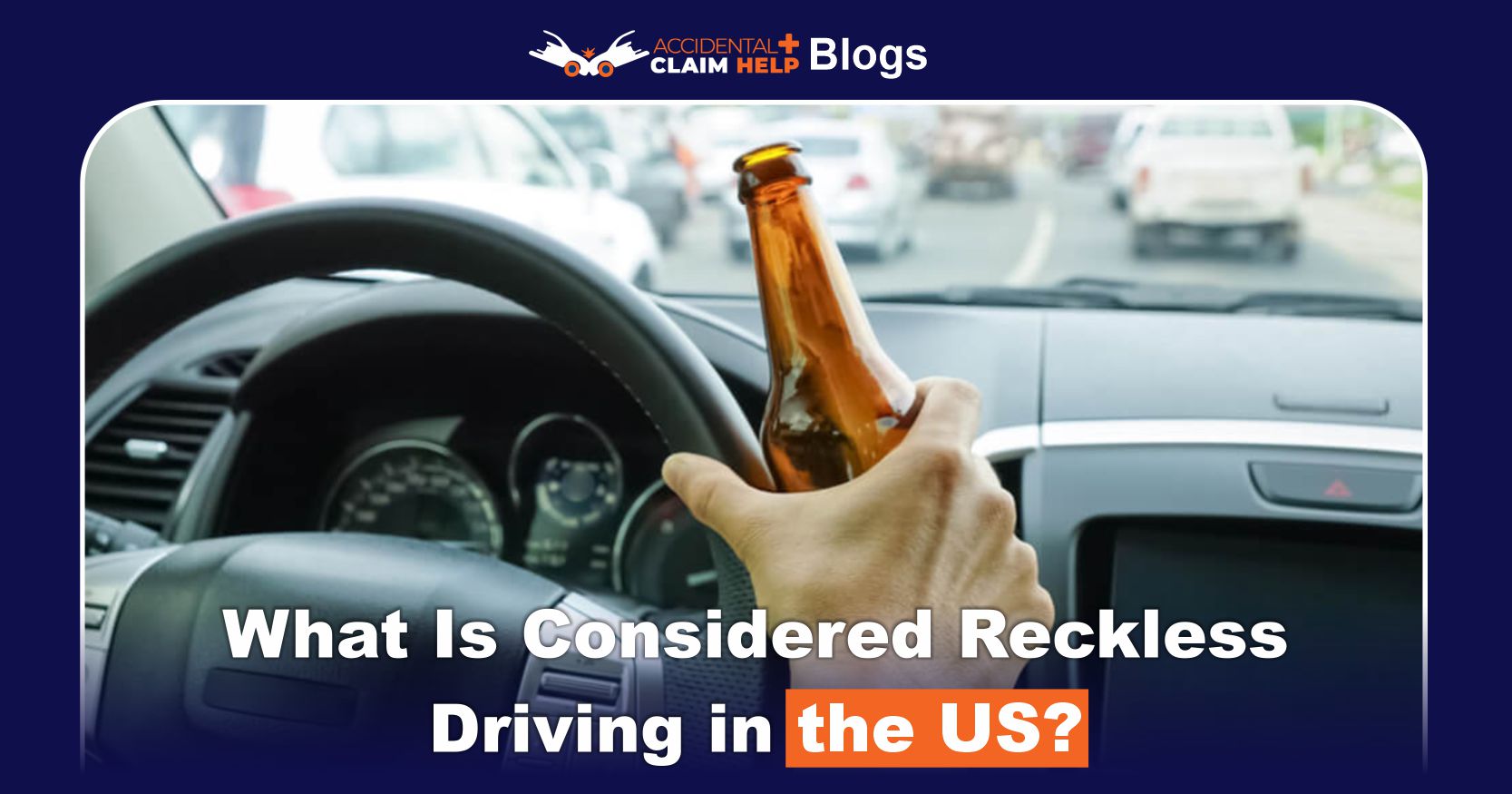What Is Considered Reckless Driving in the US?
Reckless driving is one of the most serious traffic violations across the United States. If you are asking yourself, what is considered reckless driving in US, the answer depends on state laws, but the general meaning is the same everywhere. It refers to operating a vehicle in a way that shows a willful disregard for the safety of others. Unlike minor infractions such as speeding a few miles over the limit, reckless driving is classified as a criminal offense in many states, carrying severe penalties that can affect your driving record, insurance rates, and even your freedom.
While traffic tickets like careless driving are usually considered infractions, reckless driving is often treated as a misdemeanor offense. In some serious cases, it may even be charged as a felony. Understanding the reckless driving definition, common examples, and consequences can help you avoid costly mistakes on the road.
What Qualifies as Reckless Driving?
One of the most common questions drivers have is, what qualifies as reckless driving? Courts and law enforcement define it as any driving behavior that goes beyond simple negligence and demonstrates a conscious disregard for the rules of the road.
For example, excessive speeding is a typical factor. In many states, reckless driving speed is defined as driving 20–25 mph over the posted speed limit. Some jurisdictions may set a specific threshold, such as driving over 85 mph regardless of the posted limit. However, speed is not the only factor. Aggressive maneuvers such as weaving in and out of traffic, tailgating, running red lights, and street racing can all count as reckless driving.
Another key element is intent. Unlike careless driving, which may happen due to distraction or inattention, reckless driving involves a willful choice to engage in dangerous behavior. That’s why courts treat it more seriously.
Reckless Driving Examples on US Roads
Everyday driving scenarios can quickly escalate into reckless driving charges. Some common reckless driving examples include driving at extreme speeds in residential areas where pedestrians are present, overtaking vehicles on blind curves or in no-passing zones, ignoring traffic signals and stop signs, performing illegal U-turns in heavy traffic, and street racing on public roads.
In some states, even driving without headlights at night or attempting dangerous stunts on highways can lead to a reckless driving offense. The broader your understanding of these behaviors, the easier it becomes to avoid them.
Reckless Driving Penalty and Punishment
The reckless driving penalty varies by state, but the consequences are always serious. Typically, a first-time reckless driving charge is considered a misdemeanor offense. Penalties may include fines ranging from $100 to over $2,500, jail time which may last from a few days to up to a year, suspension or revocation of your driver’s license, or probation if reckless driving led to property damage or injury.

In some cases, reckless driving may be elevated to a felony. For example, if reckless driving results in severe injury or death, the reckless driving punishment can include years in state prison.
How Much Is a Reckless Driving Fine?
Many drivers wonder, how much is a reckless driving fine? The cost depends on state law, your driving history, and the specific circumstances of the case. On average, fines for reckless driving range between $500 and $1,000. However, if aggravating factors exist, such as speeding over 100 mph or endangering children in the car, fines can reach $2,500 or more.
Aside from the fine, drivers often face indirect financial consequences. For instance, insurance companies view reckless driving as a high-risk behavior. After a conviction, your premiums may skyrocket for years. That makes a reckless driving ticket one of the most expensive traffic violations in the long term.
Reckless Driving vs. Careless Driving
It’s easy to confuse reckless driving vs careless driving, but the two terms are very different under US traffic law. Careless driving usually refers to simple negligence, such as failing to use turn signals or momentarily drifting out of your lane due to distraction.
Reckless driving, on the other hand, involves an intentional or willful disregard for safety. Courts see it as a conscious decision to drive dangerously. This is why penalties for reckless driving are far more severe than for careless driving. In short, careless driving may get you a fine and points on your license, while reckless driving could put you in jail.
Reckless Driving Consequences Beyond Court Penalties
The legal penalties for reckless driving are just one part of the problem. The reckless driving consequences also extend into your personal and financial life. A reckless driving conviction often stays on your driving record for years, and in some states, it cannot be expunged.
Insurance consequences are equally harsh. Many insurers will categorize you as a high-risk driver, raising your rates significantly. In worst cases, your insurer might cancel your policy altogether. Additionally, if your job requires driving, such as being a delivery driver, rideshare operator, or truck driver, a reckless driving conviction can threaten your employment.
Reckless Driving Under US Law
Under reckless driving US law, the charge is generally classified as a misdemeanor, but states have their own specific statutes. For instance, in Virginia, reckless driving is considered a Class 1 misdemeanor, punishable by up to 12 months in jail. In California, reckless driving can carry fines up to $1,000 and possible jail time. In Florida, reckless driving is a misdemeanor, but becomes a felony if serious bodily harm occurs.
These variations show why it’s important to understand local laws. Regardless of the state, a reckless driving offense is not something you can treat lightly.
Real-Life Reckless Driving Cases
Court records across the country are filled with reckless driving cases that highlight the dangers of this offense. For example, in some states, drivers have been sentenced to jail for excessively high speeds over 100 mph on highways. In other instances, individuals engaged in street racing have faced felony charges after causing fatal accidents.
Final Thoughts
To sum up, if you are asking what is considered reckless driving in US, it refers to driving behaviors that show a willful disregard for safety, such as excessive speeding, street racing, or ignoring traffic laws. Unlike minor infractions, reckless driving is treated as a serious criminal charge with penalties that may include heavy fines, jail time, license suspension, and long-lasting insurance consequences.







